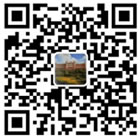Science Immunology|Chen Jun’s team reports on the novel macrophage phagocytosis checkpoint PSGL-1
On June 13, 2025, the team led by Professor Chen Jun from our institute published a research paper entitled "PSGL-1 is a phagocytosis checkpoint that enables tumor escape from macrophage clearance" online in Science Immunology. This study is the first to reveal the functional mechanism by which PSGL-1 on tumor cells promotes tumor immune escape by inhibiting macrophage phagocytosis, clarifies the new function of PSGL-1 as a macrophage phagocytosis checkpoint, and provides new targets and strategies for macrophage immunotherapy.
The study found that PSGL-1 is highly expressed in malignant hematological tumors (including T-ALL, AML, T cell lymphoma, and MM), and its expression level is negatively correlated with patient prognosis. By constructing various mouse hematological tumor models, the team found that specific knockout of PSGL-1 in tumor cells enhances macrophage phagocytosis of tumor cells, significantly inhibits tumor development, and prolongs the survival of tumor-bearing mice. Mechanistic exploration showed that PSGL-1 on tumor cells can inhibit the binding of tumor ICAM1 to macrophage LFA-1, thereby suppressing the phagocytic response. Knockout of PSGL-1 activates the LFA-1 downstream phagocytosis-promoting signaling pathway, which then induces cytoskeletal reorganization through the Src/Syk/PI3K signaling axis, ultimately enhancing macrophage phagocytic function. In terms of therapeutic strategies, the humanized monoclonal antibody targeting PSGL-1 showed good safety in toxicology experiments on cynomolgus monkeys, with no obvious toxicity observed. In in vitro functional experiments, this antibody can significantly enhance macrophage phagocytosis of human hematological malignant tumor cells; in tumor model treatment, the PSGL-1 antibody can effectively inhibit tumor progression and exhibit significant synergistic effects with chemotherapy, CD47 antibody, and CD38 antibody therapies. This study provides new possibilities for the clinical treatment of malignant hematological tumors.
Zhong Cheng, a doctoral graduate of Sun Yat-sen University, Wang Lixiang, a postdoctoral fellow, and Liu Yujia, a doctoral student, are the co-first authors of the paper, and Professor Chen Jun is the corresponding author. The research was supported by the Key Research and Development Program of the Ministry of Science and Technology, the National Natural Science Foundation of China, and other projects. Animal experiments were carried out at the Laboratory Animal Center of Sun Yat-sen University. Sun Yat-sen University is the first affiliated unit of the paper.
Original article link: https://www.science.org/doi/10.1126/sciimmunol.adn4302


